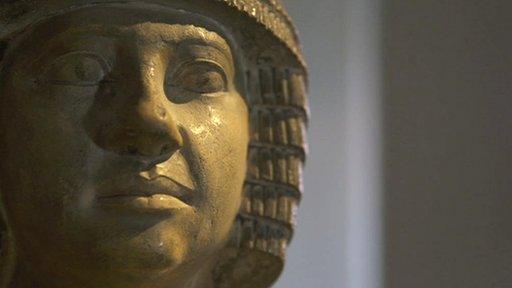Sekhemka: Northampton Borough Council 'building bridges' after statue sale
- Published
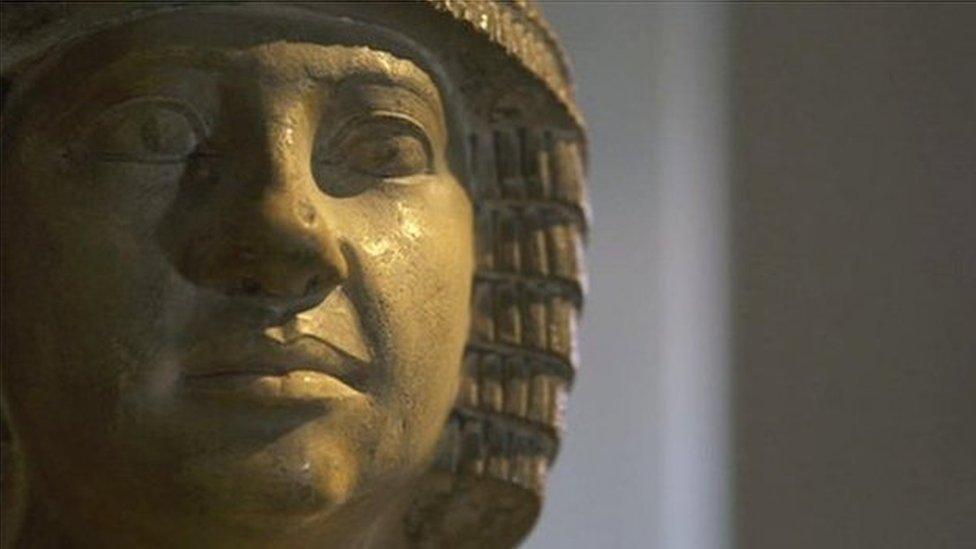
The Sekhemka statue sold at auction for nearly £16m, with Northampton Borough Council receiving about £8m
A council that got £8m from the controversial sale of an ancient statue says it is "building bridges" to regain accreditation status for its museums.
Northampton Borough Council had accreditation withdrawn, leaving it ineligible for some grants, after selling Sekhemka for £16m in 2014.
The council is using the money for a £6.7m renovation and expansion of Northampton Museum and Art Gallery.
It said the museum was "on track" for a 2020 reopening.
The sale of the Egyptian statue attracted criticism, saw a change in the code of ethics issued to museums and also cost the council-run museums service its Arts Council accreditation, which left it ineligible for a range of grants.
The council made about £8m from the sale of the 30in-tall (76cm) limestone statue, with the rest going to the family who gifted it to Northampton Museum in 1880.
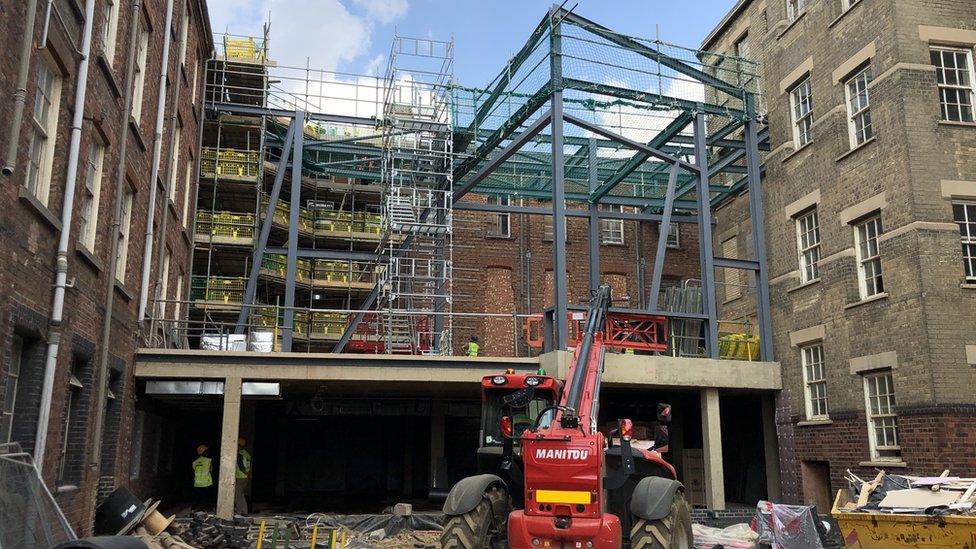
The expansion will largely house a new gallery showcasing Northampton's history of shoe manufacturing
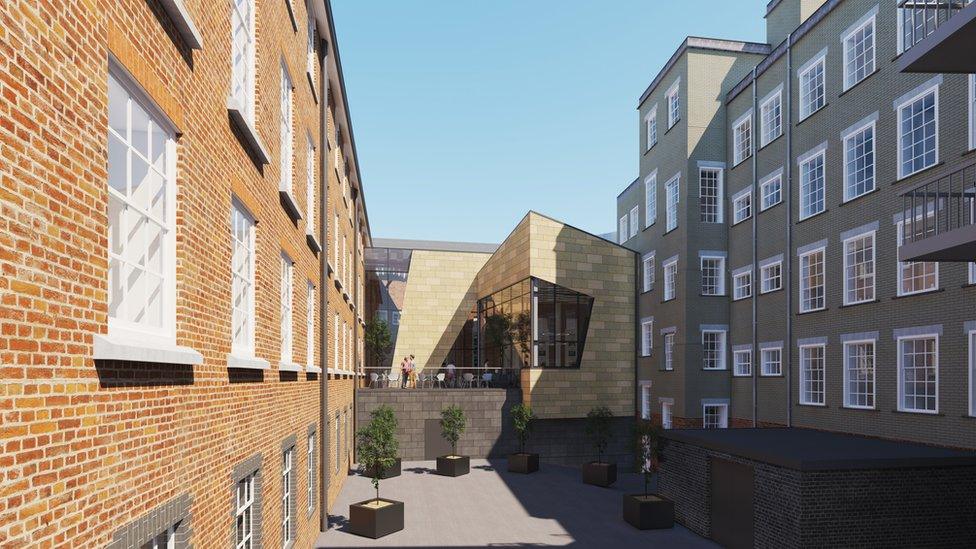
Jonathan Nunn said the council had "made some good progress" towards regaining its Arts Council accreditation
Jonathan Nunn, leader of the Conservative-run authority, said it was important that funds from the "contentious" sale, which happened before he took on the role, were made to benefit local people.
"Whether it [the sale] was right or wrong, let's get people enjoying the money that came from it," he said.
"We are dedicated to making sure Northampton is seen as a responsible cultural and arts place.
"We would ask people to come and judge the museum [when it opens] in terms of being an important part of getting accreditation recognition from the arts community.
"We are building those bridges back and we think we've made some good progress."
Northampton Museum and Art Gallery closed to the public in 2017, but renovation work did not begin until late 2018 after asbestos was found.
The refurbishment will see the museum's public spaces double in size and its new shoe gallery will highlight the town's history as a footwear centre.
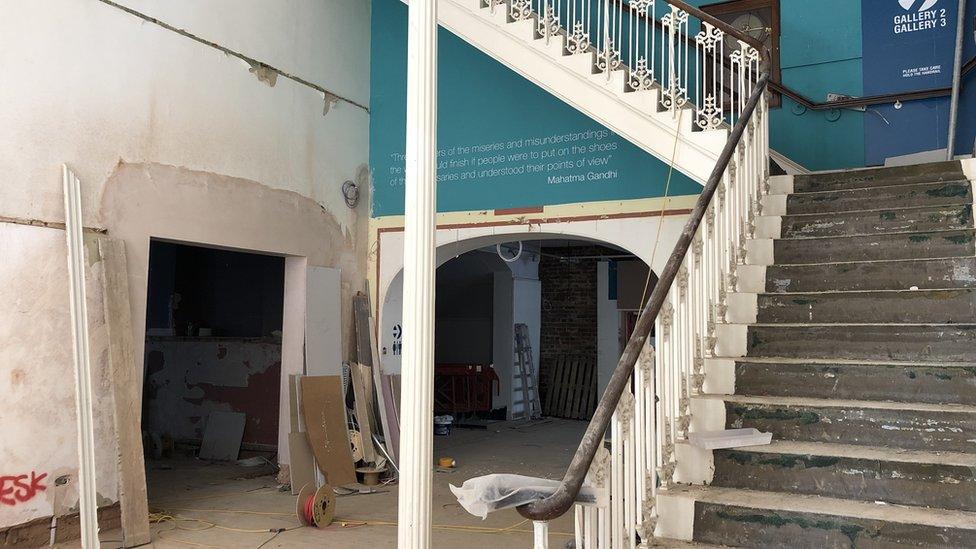
The existing museum spaces are also being renovated as part of the work
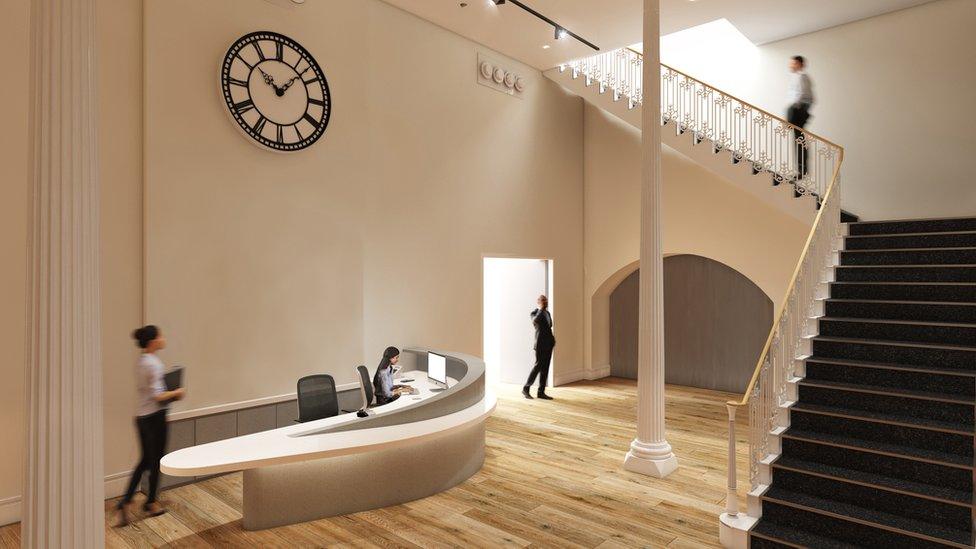
The council and developers say the museum should reopen in spring 2020

What is Sekhemka?
Described by Christie's as "an exceptional Egyptian painted limestone statue for the Inspector of the Scribes Sekhemka", it features a bare-chested, seated figure
It dates from circa 2,400-2,300BC and is probably from the Royal Cemeteries in Saqqara
The statue features his kneeling wife and a man - most probably his son - in raised relief, along with a ceremonial procession of men carrying duck, geese, a calf, lotus flowers and incense
It was acquired by the 2nd Marquess of Northampton in Egypt in about 1850 and presented to Northampton Museum by one of his sons
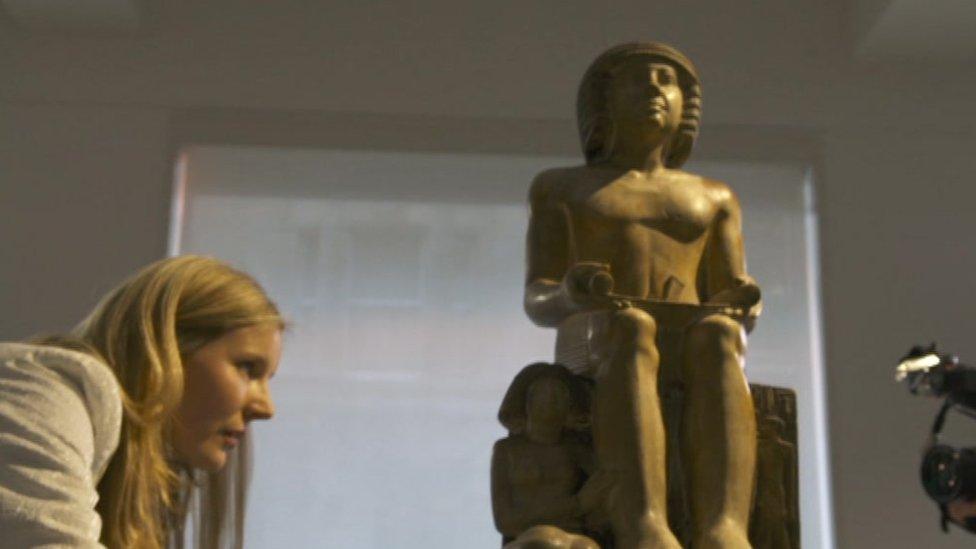
Source: Christie's
- Published4 January 2019
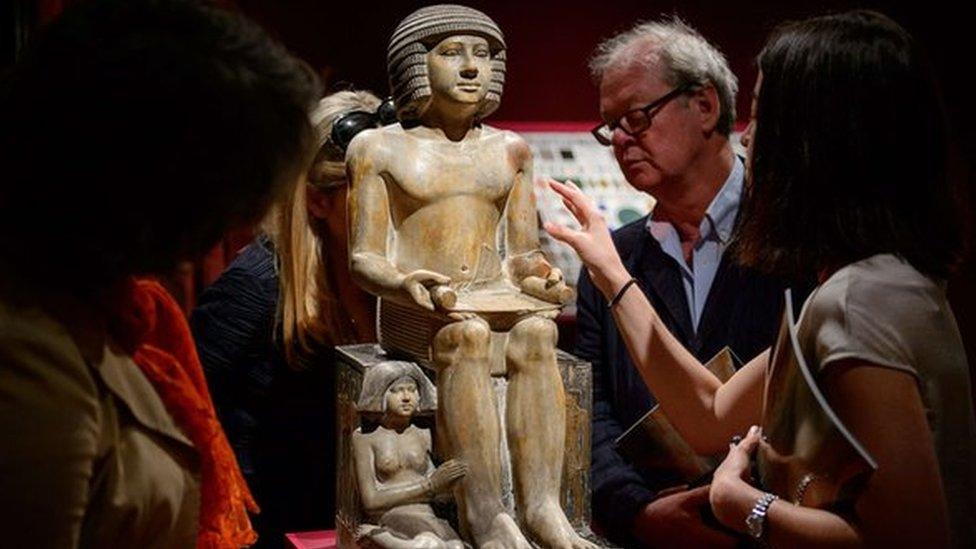
- Published5 September 2017
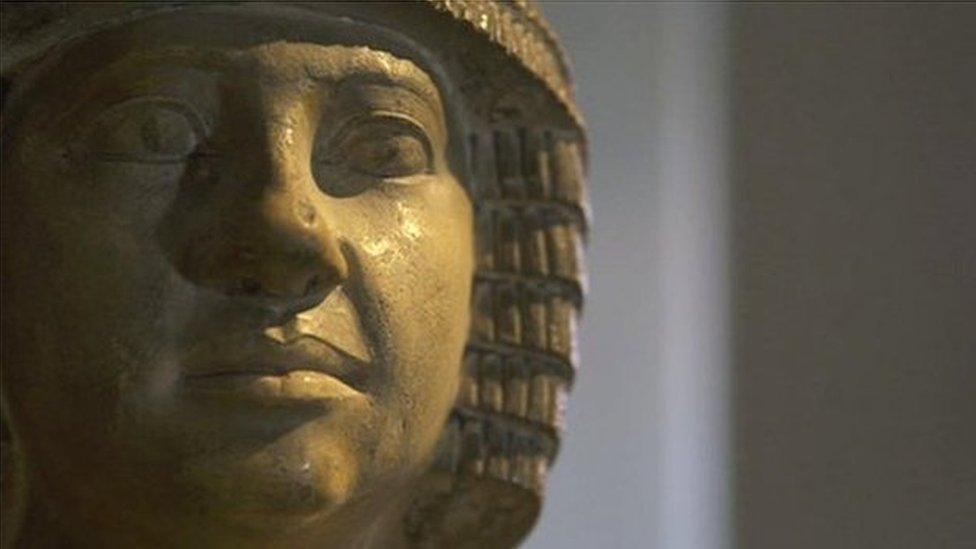
- Published15 October 2016

- Published1 October 2016

- Published28 January 2016
